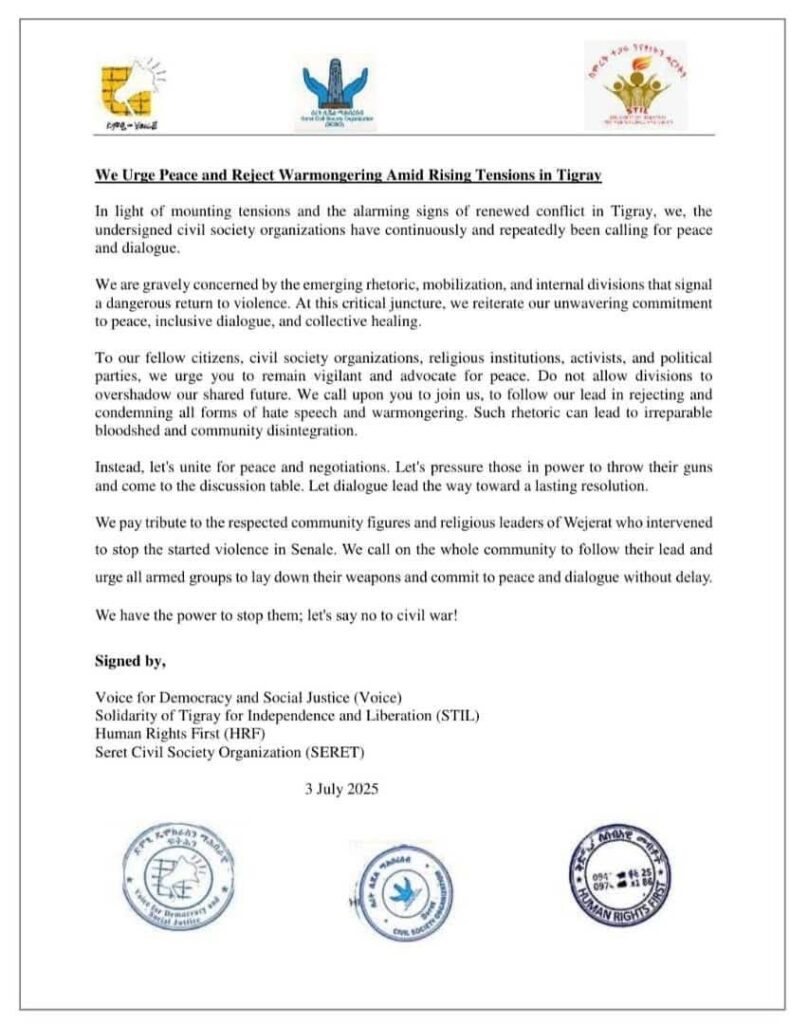Mekelle፡Telaviv, Nairobi, Pretoria, London, (Tigray Herald).
Civil Society Groups in Tigray Call for De-escalation Amid Rising Tensions in Tigray
By Staff Reporter
A coalition of civil society organisations
based in Tigray and outside has issued a bold and urgent appeal for calm, dialogue, and national reconciliation, warning against the dangers of renewed internal conflict as tensions continue to rise across the war-torn region.
In a joint statement released on Wednesday, four prominent groups Voice for Democracy and Social Justice (Voice), Solidarity of Tigray for Independence and Liberation (STIL), Human Rights First (HRF), and Seret Civil Society Organization (SERET) expressed “grave concern” over the growing rhetoric of war, mobilisation of fighters, and deepening internal fractures that they say threaten to plunge Tigray into another cycle of devastating violence.

“We urge peace and reject warmongering,” the statement reads. “Do not allow divisions to overshadow our shared future. We call upon all citizens, civil society, religious institutions, activists, and political parties to advocate for peace and dialogue, and to condemn hate speech and incitement to violence in all its forms.”
The appeal follows recent flare-ups in southern Tigray, including violence in Senale, where local reports indicate a growing presence of armed groups and political fragmentation among former TPLF allies, rival factions, and grassroots movements.
The civil society groups commended the swift intervention by community elders and religious leaders in Wejerat, whose mediation reportedly prevented bloodshed and helped restore calm to the area. Their statement calls on communities across Tigray to emulate this example and serve as agents of peace.
“We have the power to stop them,” the groups warned. “Let’s say no to civil war. Let’s pressgroupose in power to throw down their guns and come to the discussion table. Let dialogue lead the way.”
The organizations also urged all armed actors to lay down their weapons and commit to peaceful negotiation, underscoring the need for collective healing and inclusive national dialogue as Tigray emerges from years of brutal war, humanitarian crisis, and political uncertainty.
Analysts say the statement reflects growing public frustration over the perceived failures of both military and political elites to deliver peace or restore basic governance. It also signals the emergence of a more assertive civil society sector in the region one that is ready to shape the post-war future through nonviolent resistance and community organizing.
The warning comes at a pivotal moment for Tigray, as its interim administration continues to struggle with political fragmentation, while calls for democratic reform, transitional justice, and the safe return of internally displaced persons remain unanswered.




